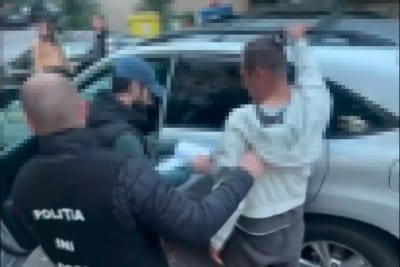
Sept. 28 (UPI) — Voters in Moldova headed to the polls Sunday in a key parliamentary election that could tip the Balkan nation closer to European Union accession or give Russia a major political foothold in Europe, as police responded to reports of bomb threats over the election.
In the election Sunday, all 101 seats in the country’s parliament are up for grabs. Though the ruling Action and Solidarity party is expected to remain the largest party, it could lose its outright majority that could make it more difficult for Maia Sandu, the country’s pro-Western president, to push through legislation for changes required for EU accession.
“Dear Moldovans, go vote! Moldova, our beloved home, is in danger and needs the help of each and every one of you. You can save it today with your vote. Tomorrow may be too late,” Sandu said in a statement while casting her ballot in Chișinău. “We are a small but strong country. Let us move forward in peace toward a better future.”
Moldova’s Central Electoral Commission, which handles the election, said in a statement Sunday that more than 1.5 million voters cast ballots in the election, making the participation rate more than 52% of registered voters. Polls closed at 9 p.m. local time as Moldovans anxiously await the results of the election in coming days.
Ahead of the election, Sandu warned on social media Friday that the election could determine whether “Russia drags us back into a grey zone, making us a regional risk” and said the election should be determined “by Moldovans, not Moscow.”
Moldova, a small nation that gained its independence from the Soviet Union in 1991, lies between Ukraine and Romania. This year’s election has been fraught with allegations of illegal financing of pro-Russian parties, covert propaganda campaigns and attempted destabilization plots.
“The commission calls on all those involved in the electoral process, especially electoral contestants, to wait for the completion of the voting process, counting and announcement of the final results. In case of suspicions of possible irregularities, we recommend that they use the legal mechanisms of challenge,” the Central Electoral Commission said Sunday.
On Friday, the commission abruptly struck candidates from two parties, Heart of Moldova and Moldova Mare, also known as Greater Moldova, from the ballot. It cited illegal financing, vote-buying, undeclared foreign funds and violations of the gender quota in candidate lists. Heart of Moldova’s exclusion followed a court ruling restricting its activities for a year.
The commission announced Sunday that the Supreme Court of Justice upheld the Friday decision to cancel the registration of the Greater Moldova party, invalidating it as an option on ballots after an emergency appeal by the populist and pro-Russian party.
It also revealed that earlier in the day, the commission was notified by the General Police Inspectorate that it would urgently relocate polling stations on the left bank of the Nistru River to backup locations “in order to ensure the safety of all citizens in that area.”
The left bank of the Nistru River refers to Transnistria, a pro-Russian breakaway region that is separated from government-controlled Moldova by a demilitarized security buffer.
National police from the technical-explosive unit responded after receiving automated phone calls reporting bomb threats at several locations in the security zone, authorities said in a statement Sunday. They said specialized services acted according to protocols to ensure citizens’ safety.
Police also encouraged citizens to go out and vote, rely only on official sources of information, and be cautious of narratives deliberately promoted by actors seeking to undermine the electoral process.
In another statement, the National Police of Moldova announced that it has information about certain groups of people who intend, starting at midnight and throughout Monday, to organize disruptions and destabilization in the capital during a protest.
Authorities stressed that law enforcement will not allow violations of the law, public disorder, threats to citizens, or risks to national security. Police warned protest organizers that they are legally responsible for the conduct at the demonstrations.
Police later added that authorities had detained three people, including two brothers who had been under surveillance for nearly two months.
The men are alleged to be employees of security forces in the breakaway Transnistria region and acted as coordinators responsible for logistics, monitoring, and supplying groups involved in the plans to destabilize the election.
During the searches, law enforcement officials confiscated items such as pyrotechnics and flammable materials, which authorities reported were intended to incite panic and disrupt public order.
The Central Election Commission also acknowledged reports that some observers were denied access to certain polling stations, but clarified that only accredited observers are allowed access to polling sites for monitoring.